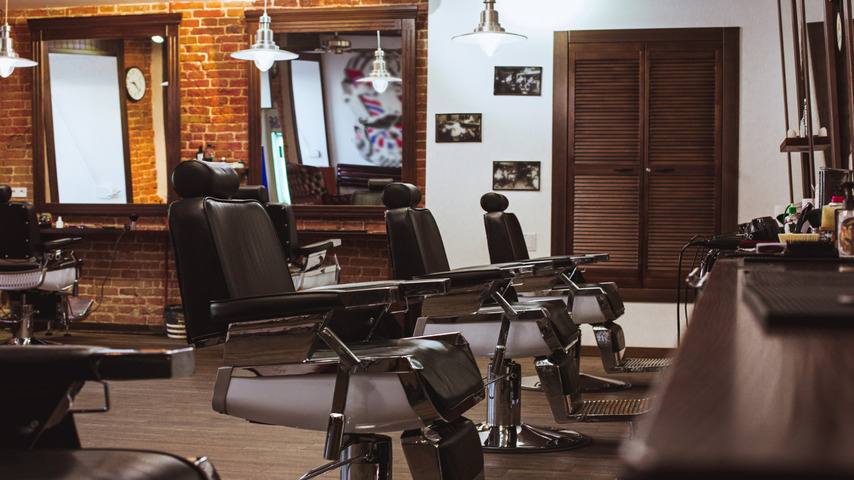Hair salon rentals involve leasing out space within your salon to independent stylists or beauty professionals. This model offers flexibility for stylists who want to operate their own business without the overhead costs of running an entire salon. For salon owners, it provides a steady income stream and the potential to attract a diverse clientele. The concept is advantageous as it allows salon owners to maximize their space utilization while minimizing downtime. Additionally, it introduces a variety of services under one roof, potentially drawing in more clients due to the range of expertise available.
Types of Salon Rentals
There are several types of salon rentals to consider, each with its unique advantages:
- Chair Rentals: Stylists rent a single chair within the salon. This is ideal for salons looking to fill unused space and for stylists who are just starting out. Chair rentals are often the most economical option, allowing new stylists to build their clientele without significant upfront investment. It also encourages a collaborative environment where stylists can learn from one another while sharing a common space.
- Booth Rentals: This involves renting a specific section or booth. It offers more privacy and space for the stylist to personalize their work area. Booth rentals provide a middle ground, offering more autonomy than chair rentals but at a lower cost than suites. Stylists can decorate their booths to reflect their brand, enhancing their professional identity and customer experience.
- Suite Rentals: Entire suites are rented out, providing complete privacy and autonomy for the stylist. This option is often preferred by established stylists with a loyal clientele. Suite rentals allow for full customization, enabling stylists to create a personalized salon atmosphere. This setup is ideal for those who wish to offer specialized services or who require a private space for their clients.
Crafting a Solid Rental Agreement
A well-drafted hair salon chair rental agreement or booth rental contract is crucial. It outlines the terms and conditions, protecting both the salon owner and the stylist. A comprehensive agreement minimizes misunderstandings and sets clear expectations, fostering a professional relationship. It is essential to regularly review and update agreements to reflect any changes in the salon’s policies or market conditions.
Key Elements of a Rental Agreement
- Lease Duration: Clearly specify the rental period, whether it’s a month-to-month lease or a long-term agreement. This helps both parties understand their commitments and allows for flexibility in case of changing circumstances. Long-term leases might offer stability, but month-to-month agreements provide adaptability in a dynamic market.
- Rental Price: Define the hair suite salon rental booth rental prices or suite rental costs. Ensure that the pricing is competitive yet profitable. Consider offering introductory rates or discounts for longer lease commitments to attract quality stylists. Regularly assess the pricing structure to remain aligned with market trends and inflation.
- Responsibilities: Detail the responsibilities of both parties. This includes maintenance, utilities, and any additional services provided by the salon. Clearly outlining who is responsible for what prevents disputes and ensures smooth operations. Including specifics on shared resource usage, like communal areas and equipment, is also beneficial.
- Rules and Policies: Outline salon policies regarding operating hours, cleanliness, and conduct to maintain a harmonious environment. Establishing clear guidelines helps maintain professionalism and ensures that all stylists contribute to a positive salon atmosphere. Regularly reviewing these rules with your renters can reinforce their importance and adherence.
- Termination Clause: Include conditions under which the contract can be terminated, ensuring protection for both parties. This clause should cover scenarios like breach of contract, non-payment, or changes in business strategy. Having a clear termination process can prevent legal complications and provide a roadmap for amicable separations.
Setting Competitive Rental Prices
Pricing your rentals correctly is essential for attracting talented stylists while ensuring profitability. Well-considered pricing strategies can differentiate your salon in a competitive market and ensure long-term success. Balancing affordability with profitability is key to sustaining both your business and attracting top talent.
Factors Influencing Pricing
Several factors can influence hair salon rental prices:
- Location: Salons in high-traffic or upscale areas can command higher rental fees. Location is a critical component, as visibility and accessibility directly impact a stylist’s ability to attract clients. Consider the demographics and spending behavior of the local population when setting prices.
- Amenities: Offering additional amenities like parking, Wi-Fi, or salon supplies can justify higher prices. These perks can enhance the appeal of your rental spaces, making them more attractive to potential renters. Evaluate which amenities add the most value and consider them in your pricing strategy.
- Market Demand: Research local competition to understand the prevailing market rates. Being aware of competitors’ offerings allows you to position your rentals effectively. Regular market analysis ensures your pricing remains competitive and aligned with industry standards.
Pricing Strategies
- Fixed Rent: Charge a consistent monthly fee, giving stylists predictability in their expenses. This model simplifies financial planning for both parties and can be easier to manage administratively. Consider offering tiered fixed rates based on space size or location within the salon.
- Commission-Based Rent: Take a percentage of the stylist’s earnings. This aligns the interests of both parties but can be complex to manage. This model can encourage stylists to perform well, as their rent correlates with their success, but requires transparent tracking of earnings.
- Tiered Pricing: Offer different pricing tiers based on the amenities and space provided, catering to stylists with varying needs and budgets. This flexibility can attract a diverse range of professionals to your salon. Tailor your offerings to suit the unique demands of your target market segments.
Managing Your Salon Rentals
Effective management is key to ensuring a successful rental model. It involves not only overseeing daily operations but also fostering a supportive community within your salon. Strong management practices can enhance the reputation of your salon and ensure high retention rates among renters.
Building Strong Relationships
- Communication: Maintain open lines of communication with your renters. Regular check-ins help address issues before they escalate. Effective communication builds trust and ensures that stylists feel valued and supported.
- Support and Training: Provide ongoing support and training opportunities. This not only helps stylists improve their skills but also fosters loyalty. Offering workshops or access to professional development resources can position your salon as a hub for growth and learning.
Marketing Your Salon
- Online Presence: Use social media and online platforms to showcase your salon’s unique features and attract potential renters. Highlighting success stories and testimonials from current renters can enhance credibility and attract interest. Regular updates and engaging content can keep your salon top-of-mind for prospective renters.
- Client Referrals: Encourage current stylists to refer others. Offer incentives for successful referrals to expand your pool of renters. A referral program can tap into your network’s potential and bring in stylists who are a good cultural fit for your salon.
Maintaining the Salon Environment
- Cleanliness and Maintenance: Ensure that the salon remains clean and well-maintained. A tidy environment enhances the client experience and reflects positively on both the salon and the stylists. Regular cleaning schedules and maintenance checks can prevent issues and maintain a professional atmosphere.
- Community Building: Foster a sense of community among your renters. Host events or workshops to encourage collaboration and networking. A strong community can enhance job satisfaction and create a supportive environment that benefits everyone involved.
Legal and Financial Considerations
Understanding the legal and financial aspects is crucial for a seamless operation. Proper management of these areas protects your business and ensures compliance with relevant laws and regulations. Staying informed about changes in legal requirements can prevent costly mistakes.
Tax Implications
- Independent Contractors: Stylists renting space are typically considered independent contractors. Ensure that your rental agreements reflect this status to avoid potential legal issues. Clarifying this distinction can prevent misclassification penalties and ensure proper tax treatment.
- Record Keeping: Maintain accurate records of rental agreements and payments for tax purposes. Good record-keeping facilitates smooth financial audits and helps in the event of disputes. Implementing a robust system for tracking transactions can simplify tax filing and financial management.
Insurance Requirements
- Liability Insurance: Require stylists to carry their own liability insurance. This protects both the salon and the stylist in the event of accidents or damages. Ensuring that renters have appropriate coverage can mitigate risks and provide peace of mind for all parties.
- Property Insurance: Ensure that your salon’s property insurance covers the rented spaces. Review your policy regularly to confirm it meets your business needs. Adequate coverage protects your investment and ensures continuity in case of unexpected events.
Conclusion
Hair salon rentals offer a mutually beneficial arrangement for both salon owners and stylists. By understanding the types of rentals, crafting comprehensive agreements, setting competitive prices, and managing your rentals effectively, you can maximize profits and create a thriving salon environment. Embrace this business model with the right strategies, and watch your salon flourish. With careful planning and execution, salon rentals can transform your business into a vibrant and profitable enterprise, catering to the ever-changing needs of the beauty industry.



